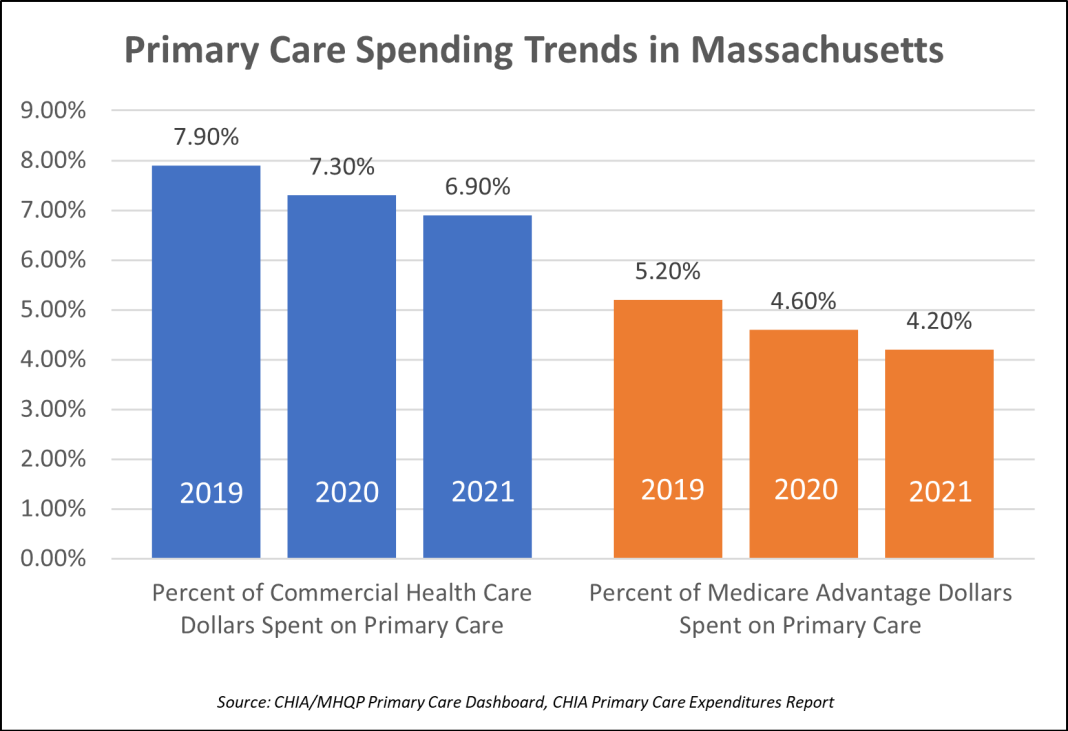A bill in the Massachusetts Legislature would establish an aggregate primary care expenditure target for the Commonwealth, as well as an opt-in prospective payment model for primary care physicians.
The bill, S.750, introduced by Sen. Cindy F. Friedman, calls for the target to increase from 8 percent of total Commonwealth healthcare expenditures for calendar year 2026 to 10 percent in 2027, and 12 percent in 2028.
For calendar years 2029 and beyond, if the Massachusetts Health Policy Commission determines it is warranted, the commission may recommend modification to such targets, provided, that the targets don’t fall below 12 percent of total healthcare expenditures in the Commonwealth or rise higher than 15 percent.
A February essay in the Commonwealth Beacon by Wayne Altman, M.D., described several ways in which the current primary care system in Massachusetts is “broken.”
“Every day at primary care offices across the Commonwealth, new patients calling for basic healthcare services are either being turned away or asked to endure exorbitant wait times. For Massachusetts families, this is a full-blown crisis,” he wrote. “There are not enough primary care clinicians in the state and those left in the profession are aging out – one third of the workforce is already over the age of 60. Others are burning out, reducing their hours, or leaving the field altogether.”
Altman, a practicing family medicine physician in Arlington, Mass., and also serves as the chair of family medicine at Tufts University, added that ‘the consequences of diminished access to affordable and timely primary care services are predictable, but also deeply troubling – money ends up being spent on unnecessary hospital and emergency care to treat conditions that become exacerbated due to primary care that is out of reach. ERs are overrun and taking the place of primary care.”
Noting that Delaware, Rhode Island, and Oregon have taken similar steps, Altman pointed to Friedman’s bill as one potential solution.
The legislation also calls for the creation of a 19-member primary care board, tasked with developing and recommending a primary care prospective payment model, to be implemented by the commission, that allows a primary care provider in the Commonwealth to opt in to receiving a monthly lump sum payment for all primary care services delivered.
The bill states that the prospective payment model shall include a baseline monthly per-patient payment, based on several historical payment factors, with the baseline adjusted based on factors such as quality of care and the clinical and social risk of the patient panel.
The bill said the model should include a list of primary care “transformers,” created by the board, that, if adopted by a primary care provider, would increase the baseline monthly per patient payment.
Transformers would be evidence-based primary care services that improves quality or access, enhances a patient’s experience, or promotes health equity in primary care. These might include:
• Employing community health workers or health coaches as part of the primary care team;
• Investing in social determinants of health;
• Collaborating with primary care-based clinical pharmacists;
• Integrating behavioral healthcare with primary care;
• Offering substance use disorder treatment, including medication-assisted treatment, telehealth services, including telehealth consultations with specialists, medical interpreter services, home care, patient advisory groups, and group visits;
• Using clinician optimization programs to reduce documentation burden, including, but not limited to, medical scribes and ambient voice technology;
• Investing in care management, including employing social workers to help manage the care for patients with complicated health needs;
• Establishing systems to facilitate end-of-life care planning and palliative care;
• Developing systems to evaluate patient population health to help determine which preventative medicine interventions require patient outreach;
• Offering walk-in or same-day care appointments or extended hours of availability; and
• Any other primary care service deemed relevant by the board.







